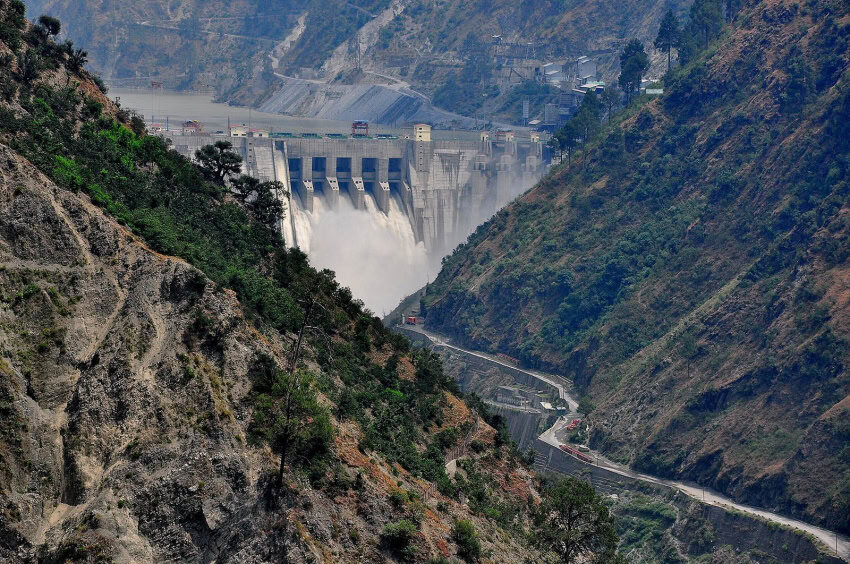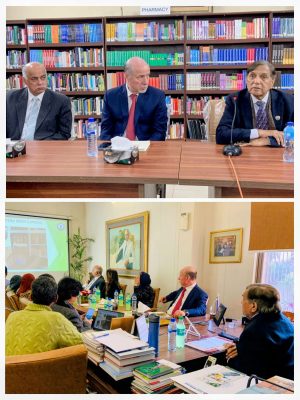ISLAMABAD – A two-day meeting between Indus Water commissioners of Pakistan and India for resolution of water dispute between the two countries, will begin in Islamabad today (Monday).
The Pakistan delegation will be headed by Mirza Asif Saeed while P.K. Saxena will lead the Indian team. A 10-member Indian delegation led by India’s Indus Water Commissioner PK Saxena and comprising external affairs ministry officials and technical experts arrived in Lahore through Wagah border and departed for Islamabad in the afternoon.
The two-day meeting between the countries is taking place after a gap of two years. The last meeting between the nuclear-armed neighbours took place in May 2015.
The two countries met an impasse on the design issue of Kishanganga and Ratle hydroelectric plants that India is constructing on Kishanganga/ Neelum River (a tributary of Jhelum River) and Chenab River respectively.
The agenda of the two-day talks includes discussions on the design aspects of Pakal Dul, Lower Kalnai and Miyar hydroelectric plants, flood data supply by India and the tour programme of inspection and meetings by Pakistan and India to the sites of their interest in the Indus Basin.
Pakistan is set to raise issues related to three dams 1000 MW Pakuldul on Chenab, 120 MW Miyar, located across Miyar Nalla which is a right bank main tributary of River Chenab and the 43 MW Lower Kalnai hydro project on Lower Kalnai Nalla, a tributary of river Chenab.
According to a Water and Power ministry spokesman, Pakistan would continue its efforts for resolution of the matters according to the provisions of the IWT.
The Indus Water Treaty signed in 1960 deals with water distribution and sharing of the six rivers of the Indus basin, of which the three eastern rivers Beas, Sutlej, Ravi were allocated to India and the three western rivers Jhelum, Chenab and Indus to Pakistan. The World Bank had brokered the agreement and have a role in dispute resolution. It was also responsible for the provision of funds to both countries that would allow them to construct several dams and canals to fulfil their needs.
The treaty has been violated twice already when India constructed two hydroelectric power plants named ‘Kishenganga’ and ‘Ratle’ on the Neelum and Chenab rivers.














